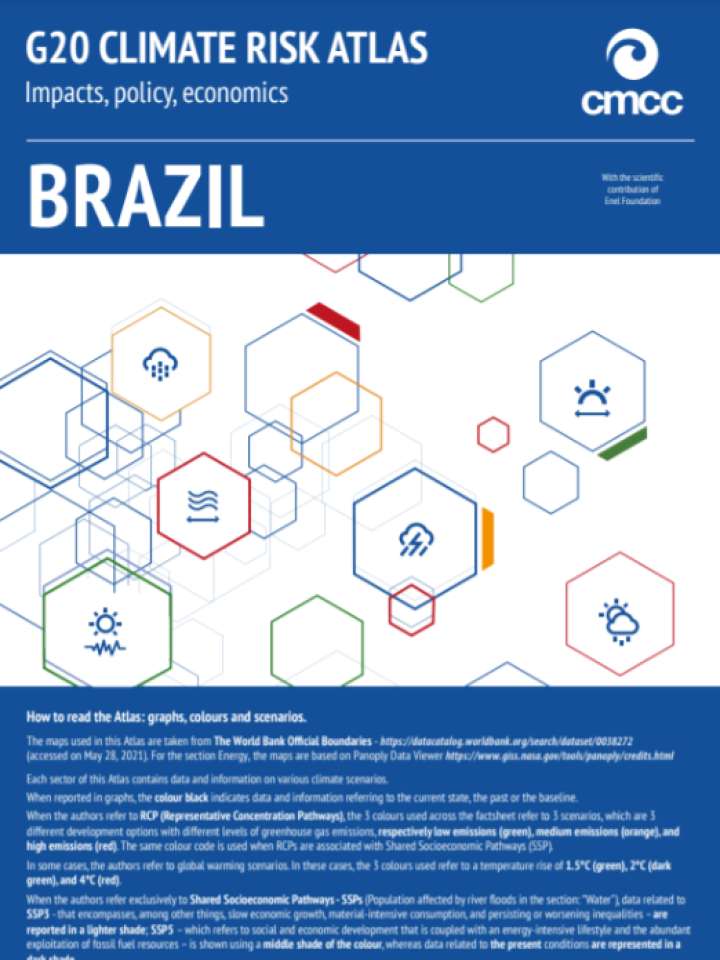G20 Climate Risk Atlas: Brazil
This report summarizes the risks posed on Brazil's climate, ecosystems, food and water systems, and citizens by climate impacts, as well as the country's policies for mitigation, adaptation, and emissions reductions. Although it extends into the temperate zone, Brazil is a tropical country due to its geographical configuration, coastal length, geomorphology, and territorial air-mass dynamics. The Amazon Basin has a typically hot and tropical climate due to the equatorial air masses; the Brazilian Highlands are subtropical; and the narrow coastal lowland area varies from a tropical climate in the north to temperate in the south. The upland plains of the south also have a temperate climate. Brazil is expected to face vastly greater chances of heatwaves and drought causing decreased agricultural productivity amid continued degradation of the Amazon.
The G20 Climate Risk Atlas represents a science-based tool that can support decision-making processes and the planning of required policies. The simple language, attractive features, and design is intended to ensure that the Atlas lends itself to easy consultation and dissemination, therefore opening the door, not only to decision-makers and stakeholders, but also to the general public, creating a participatory and iterative process which can be used to increase public awareness on climate issues. In the process of a sustainable transition, climate change must be considered the fundamental pillar of the political agenda. Only committed and timely mitigation and adaptation actions can limit the intensification of extreme events, the destruction of ecosystems, infrastructure and populations, and in the process enable people to benefit from a better and more equitable future.
Explore further
